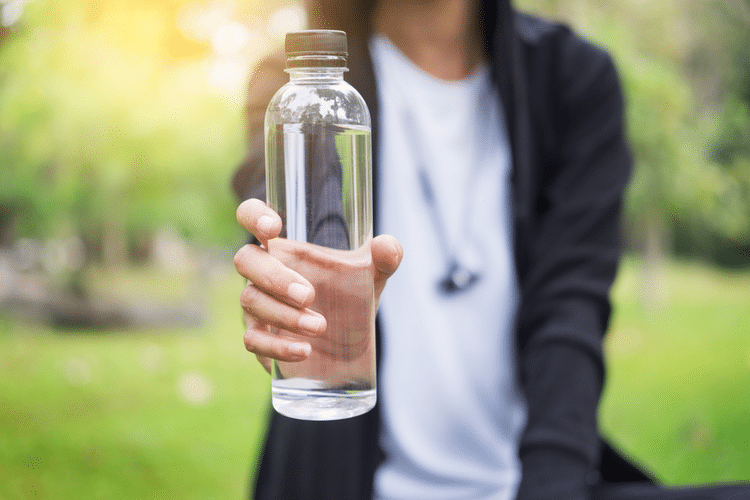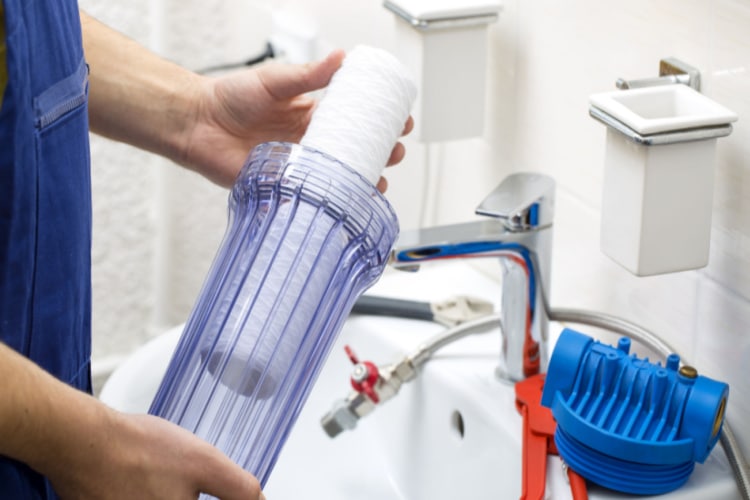Perhaps you’re planning a trip to Norway in a couple of months. You have reserved a place to stay, got your plane ticket, and already submitted time off at work. You’re so excited to visit another country and experience a different culture.
But then, you consider whether or not the tap water is safe. You want to be confident that you can use bathroom faucet water without worrying about harsh chemicals or other pollutants.
In this article, we’ll discuss:
- Source of Norway’s tap water
- How tap water is treated in Norway
- Top cities with the cleanest tap water in Norway
Is Norway Tap Water Safe To Drink?
Tap water is safe to drink all over Norway. Most of the water is naturally pure, straight from small mountain streams, resulting in clean and cold water that you can enjoy directly from the tap.
Norway is generally a healthy place and one of the top countries to live in. Norway ranks second in having the best, highest-quality tap water worldwide, protecting the groundwater and utilizing advanced systems to guarantee the best water for their citizens.
While you can consume water anywhere, there still are some places to keep in mind that aren’t completely safe. Experts advise those living in untreated areas to pay close attention to the water’s color and smell, which ultimately hints at the overall condition.
If the water doesn’t look or smell normal, don’t use it without taking the necessary precautions.
That said, Norway has exceptional hydropower expertise that serves thousands of people. They have some of the best supply systems around the globe, surpassing other countries in their quality standard. Additionally, the government actively works to maintain the quality of drinking water.
Is Norway Water Hard or Soft?
The government collects samples from hundreds of waterworks to analyze the water treatment methods. The waterworks supply a good portion of the Norwegian population; the constituents and concentration range determined that Norwegians generally use soft water.
The water hardness may vary in certain areas. However, the larger parts of the country have soft water flowing through their pipes.
Soft water translates to having lower amounts of minerals like calcium and magnesium. In other words, the chemical composition of soft water improves the taste and quality of drinking water.
Top 3 Norway Cities With the Cleanest Water
Vågan and Sirdal provide the best drinking water in the country. The Environment and Technology conference awarded Norway’s Best Drinking Water to the former cities, looking at 100 different waterworks in nine regions. They awarded the final winners in two categories: surface water and groundwater.

Vågan and Sirdal have fantastic water due to the deep taste with little runoff from the surrounding mountains. Norway purifies the water before it goes into the taps for the best quality while avoiding heavy processing.
Oslo is another viable option for the cleanest water in Norway. This city is home to popular higher-end water brands featuring undeniably clean tap water.
Since Norway focuses on hydropower, it only makes sense that the capital city would have water that you can drink without needing to consider any toxins.
While these cities are the top three picks, Norway generally has excellent tap water because of the government’s huge role in monitoring and manipulating the water quality. Bring a reusable water bottle to fill up before you explore Norway!
Who Regulates Water in Norway?
Waterworks deliver high-quality drinking water to 90% of the Norwegian population by consistently improving methods over the past years.
These facilities must be approved and registered in the Waterworks Register at the Norwegian Institute of Public Health. Smaller waterworks and individual suppliers that deliver water to less than 50 people do not need approval.
Norway confirms that the waterworks provide satisfactory drinking water that’s protected against pollution, pesticides, heavy metals, and other unwanted substances.
Norwegian Food Safety Authority has registered 1,500 waterwork plants in Norway, recording their required water data statistics. This organization collects water data annually and gathers updated information.
Where Norway Gets Its Water From
4.6 million citizens receive drinking water from Waterworks plants in Norway. 10% of the supply originates from surface water basins, and the remaining comes from lakes, ponds, streams, and brooks. Some groundwater may be safe, but the surface water basins must always be disinfected.
Improvements have been made over the last several decades. Economic investments advance waterworks, and if the plants don’t meet the requirements, the government provides appropriate treatment to the facility in need.
15% of the water supply is groundwater which is lower compared to other European countries such as Denmark, Iceland, and Austria. These countries use 95% groundwater as their water supply, which is often more economical.
Norway resorts to fresh surface water instead of extracting it through drilled wells in bedrock or tube wells used for irrigation. Landowners are free to extract water for their households in certain amounts. However, they need licenses in specific cases.
How Tap Water Is Treated in Norway
Norway measures the quality of the drinking water from waterworks that supply to larger populations. During this process, the government ensures that the residents receive safe water from a reputable supplier.
This country uses specific indicators to measure the stability of safe drinking water. The government confirms that no bacteria has been detected in at least 95% of twelve or more samples.
Although there are differences in the water supply between Norwegian counties, most of the population receives water with good stability and hygiene.
Norway places utmost importance on upgrading any deteriorating pipeline networks in the future. They carry out studies to investigate the relationship between water consumption and any illnesses in the Norwegian population.
The government receives support from the Research Council of Norway to conduct telephone interviews, online questionnaires, and surveys to gather necessary information that will better the overall water quality and heed feedback from the general population.
The Norwegian government examines water quality at specific plants and applies new regulations as necessary. They require that each plant produces adequate amounts of safe drinking water, secures drinking water supplies, fulfills operation requirements, and maintains the facilities.
Is Drinking Bottled Water the Safest Option in Norway?
Bottled water from Norwegian sources is becoming increasingly popular. However, it is mainly sold to people on the go rather than a substitute to tap water at home.
Norway has a reputation for some of the cleanest and best tap water in the world, but there is a steady increase in demand for bottled water. While this might seem unnecessary, bottled water continues to sell.

Nonetheless, millions of bottles are sold annually because specific residents choose these products when they’re out and about, such as hiking, exercising, driving, or traveling.
Bottled water remains trendy amongst youth who drink both bottled and tap water, depending on the circumstances. Companies appreciate that they help foster healthy drinking habits in younger generations.
Bottled water manufacturers state their policies and address people’s concerns about environmental issues seeing that bottles pose a hazard to the planet. However, Norway uses recyclable bottles and prevents greenhouse gasses with shorter transport distances.
Norway allows residents to deposit plastic bottles or redeem them at supermarkets and vendors.
What’s the difference between bottled water and tap water in Norway? Bottled water doesn’t compete with tap water. Rather, bottled water remains a competitor to soft drinks as a healthier alternative.
The natural source is purified at manufacturers’ treatment plants compared to being processed in municipal water treatment plants.
Are Water Filters Necessary in Norway?

Approximately 96% of Norway has access to clean water, a rate that has steadily increased over the years. For this reason, you don’t need a water filter but you can consider getting one for uncertain situations in the future..
You can safely drink water from the tap in restaurants, museums, and other attractions. Still, you need to be cautious about lakes, rivers, and streams.
Animal contamination continues to pose health risks. Otherwise, natural sources only contain trace amounts of harmful substances.
Most rivers in Norway have perfectly drinkable water. However, avoid drinking water from densely inhabited and agricultural areas as they are unlikely to have clean drinking water.
Conclusion
Overall, the tap water in Norway is drinkable. The government takes several steps to ensure the citizens can safely drink tap water from anywhere without worrying about harmful bacteria or other pollutants.
They have some of the best water systems and protocols for clean tap water. Still, you must take the proper precautions and avoid certain areas that could make you sick.